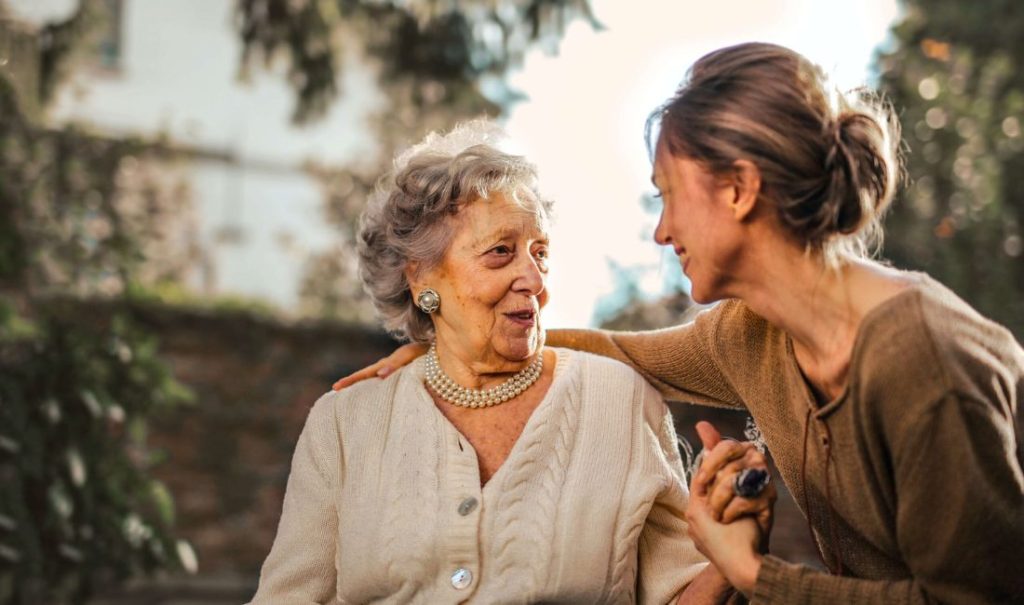Consistent Family Visits: Enhancing Life in Elder Care Homes
In elder care homes, family visits are essential for seniors’ well-being. These visits go beyond just companionship; they provide emotional support, keep their minds sharp, and make them feel connected. Let’s explore why regular family visits matter in elder care homes and how they positively impact seniors, their families, and the care facility as a whole.
Understanding the Importance of Family Visits in Elder Care Homes
1. Emotional Support and Companionship
One of the main reasons why family visits are important in elder care homes is because they provide emotional support and companionship to the residents. Many elderly individuals may feel lonely or isolated in these facilities, and having their family members visit can greatly improve their emotional well-being. Family visits allow for meaningful interactions, conversations, and shared experiences that can uplift the spirits of the residents and make them feel loved and valued. Additionally, spending time with family members can help reduce feelings of depression or anxiety that may be common among older adults living in care homes.
Family visits provide seniors with much-needed emotional support and companionship, helping them combat feelings of loneliness and isolation commonly experienced in elder care homes. Spending time with loved ones can boost their mood, reduce stress levels, and improve their overall mental well-being.
2. Cognitive Stimulation and Mental Engagement
In addition to emotional support, spending time with family members can also provide cognitive stimulation and mental engagement for older adults in care homes. Engaging in conversations, playing games, or participating in activities with loved ones can help keep their minds active and sharp. This can improve their cognitive function, memory retention, and overall mental well-being. Additionally, family visits can serve as a source of intellectual stimulation by sharing stories, discussing current events, or even engaging in hobbies together. These interactions not only uplift the spirits of the residents but also contribute to their mental stimulation and overall quality of life.
Engaging in conversations, reminiscing about past experiences, and participating in family activities during visits stimulate seniors’ cognitive abilities and keep their minds sharp. Regular mental stimulation is essential for preventing cognitive decline and maintaining cognitive function as individuals age.
3. Sense of Belonging and Connection
Engaging in social interactions with others can foster a sense of belonging and connection among seniors. By sharing stories, discussing current events, or participating in hobbies together, seniors feel a sense of community and connectedness. This sense of belonging is crucial for their emotional well-being and can help combat feelings of loneliness and isolation. Additionally, maintaining strong connections with family members during visits and engaging in family activities can further enhance this sense of belonging and connection.
Family visits reinforce the residents’ sense of belonging and connection to their loved ones and the outside world. Feeling connected to family members and maintaining familial relationships contributes to seniors’ overall happiness and sense of purpose, enhancing their quality of life.
4. Monitoring Health and Well-being
Monitoring health and well-being is crucial for seniors to maintain a high quality of life. Regular check-ups with healthcare professionals can help identify any potential health issues early on and ensure that appropriate treatment is provided. Additionally, promoting a healthy lifestyle through regular exercise, nutritious meals, and proper medication management can further support seniors’ overall well-being and prevent the onset of chronic diseases. By prioritizing their health, seniors can continue to enjoy an active and fulfilling life.
Family members who visit regularly have the opportunity to monitor their loved one’s health and well-being closely. They can observe any changes in behavior, physical condition, or emotional state and communicate concerns to the staff or healthcare professionals promptly.
5. Facilitating Communication with Caregivers
Facilitating communication with caregivers is crucial in ensuring seniors receive the best possible care. This can be achieved through regular meetings or check-ins with caregivers to discuss any updates or concerns regarding the senior’s health and well-being. Additionally, utilizing technology such as video calls or messaging apps can also help bridge the gap between seniors and their caregivers, allowing for constant communication and support.
Family visits facilitate communication between residents, their families, and caregivers. Family members can discuss care plans, medical treatments, and any specific needs or preferences with the staff, ensuring that their loved one’s care is personalized and comprehensive.
Tips for Making the Most of Family Visits
1. Plan Meaningful Activities
Plan engaging and meaningful activities during family visits, such as playing games, watching movies, or taking walks in the facility’s outdoor areas. These activities promote bonding, create lasting memories, and provide opportunities for shared enjoyment.
When planning meaningful activities for family visits, consider everyone’s interests and preferences. This could include organizing a hike in a nearby national park, visiting a local museum or art gallery, or even having a family game night with board games or card games. By incorporating activities that everyone enjoys, you can create lasting memories and strengthen your bond with your loved ones.
2. Be Present and Engaged
During family visits, it is important to be fully present and engaged with your loved ones. Put away distractions such as phones or laptops and actively participate in conversations and activities. Show genuine interest in what your family members have to say and make an effort to connect on a deeper level. By being present and engaged, you can strengthen your relationships and create meaningful connections with your loved ones.
3. Respect Their Independence and Dignity
Respecting your family members’ independence and dignity is crucial in maintaining healthy relationships. Allow them to make their own decisions and choices, even if you may disagree with them. Avoid being overly controlling or judgmental, and instead, offer support and guidance when needed. Recognize and appreciate their individuality, and treat them with the respect they deserve. This will foster a sense of trust and autonomy within your family dynamic. Remember that everyone deserves to be treated with dignity, regardless of age or circumstances.
While it’s essential to offer assistance and support when needed, it’s equally important to respect the resident’s independence and dignity. Allow them to make choices and maintain a sense of autonomy in their daily lives, fostering feelings of empowerment and self-worth.
4. Stay Informed and Involved
Stay informed about your loved one’s care plan, medical condition, and any updates from the facility. Attend care plan meetings, participate in family events, and communicate regularly with the staff to stay involved in your loved one’s care and well-being.
5. Maintain Consistency and Regularity
Consistency is key when it comes to family visits. Establish a regular visiting schedule that works for both you and your loved one, and commit to sticking to it. Consistent visits provide stability and predictability for the resident, reinforcing their sense of security and routine.
Maintaining consistency and regularity in your loved one’s care routine is crucial for their overall well-being. This includes ensuring that they receive their medications on time, sticking to a regular schedule for meals and activities, and providing a familiar and comfortable environment. By establishing a consistent routine, you can help reduce any confusion or anxiety that may arise from changes in their daily life. Additionally, regular communication with the staff can help address any concerns or adjustments that may need to be made to the care plan, ensuring that your loved one’s needs are consistently met.
Conclusion
Regular family visits play a vital role in the lives of seniors residing in elder care homes, offering emotional support, cognitive stimulation, and a sense of connection and belonging. By prioritizing family visits and making them a consistent and meaningful part of the resident’s routine, families can contribute to their loved one’s overall happiness, well-being, and quality of life in elder care homes.
First Choice Care Home – Strengthening Bonds, Enriching Lives in Elder Care Homes.
Share this article to:
You May Also Like
Senior Nutrition Tips to Make Meals Delicious in Fortuna
Why Proper Senior Nutrition is Vital for Elderly Care As we age, maintaining a nutritious and balanced…
Role of Compassionate Senior Care in Elderly Well-Being
Compassionate Elderly Care: A Necessity, Not a Luxury Aging brings unique challenges that require professional elderly care…
How We Show Personalized Love – Elder Care Home Fortuna
A Personalized Approach to Elderly Care At First Choice Care Home Fortuna, we believe that every senior…



